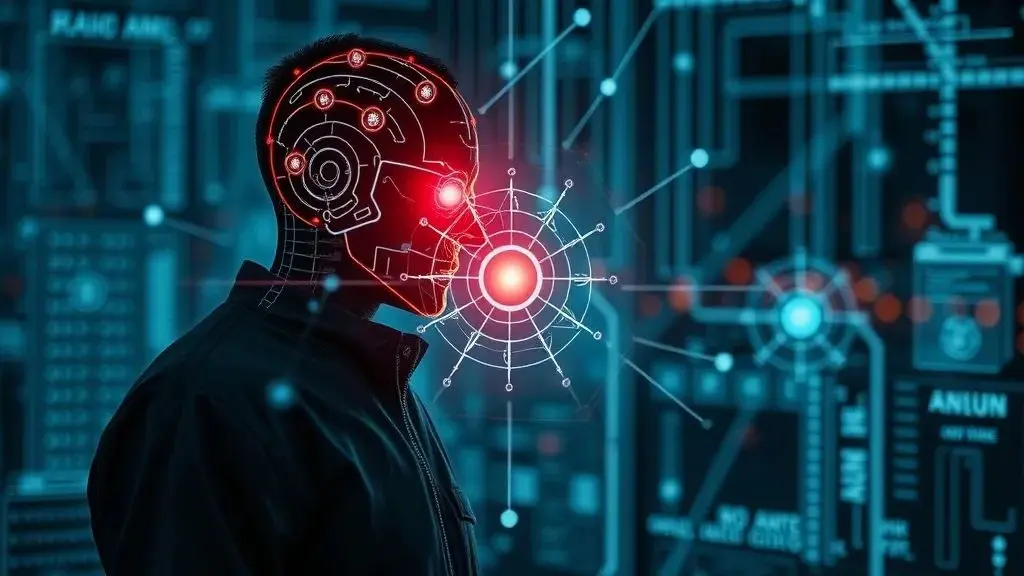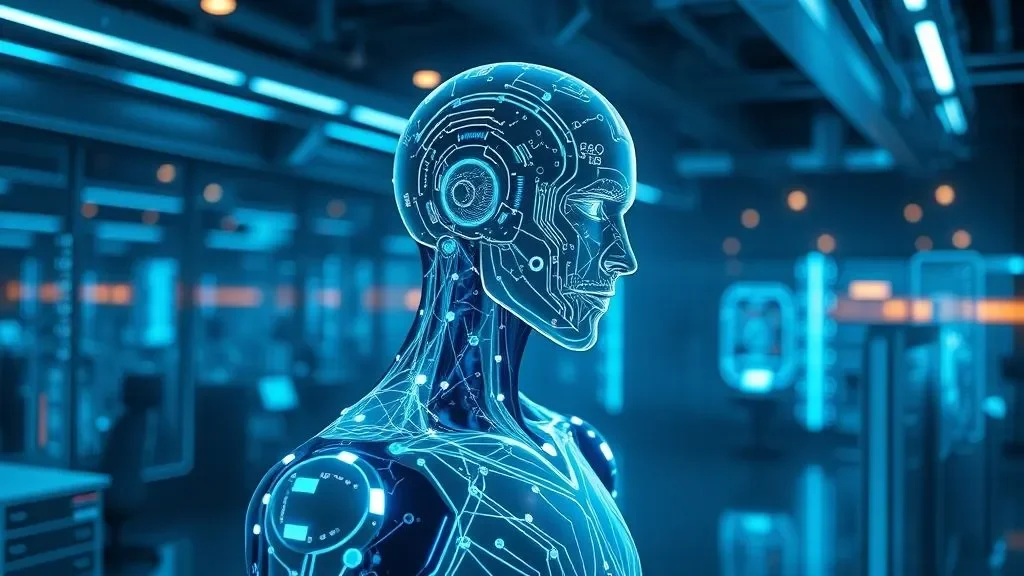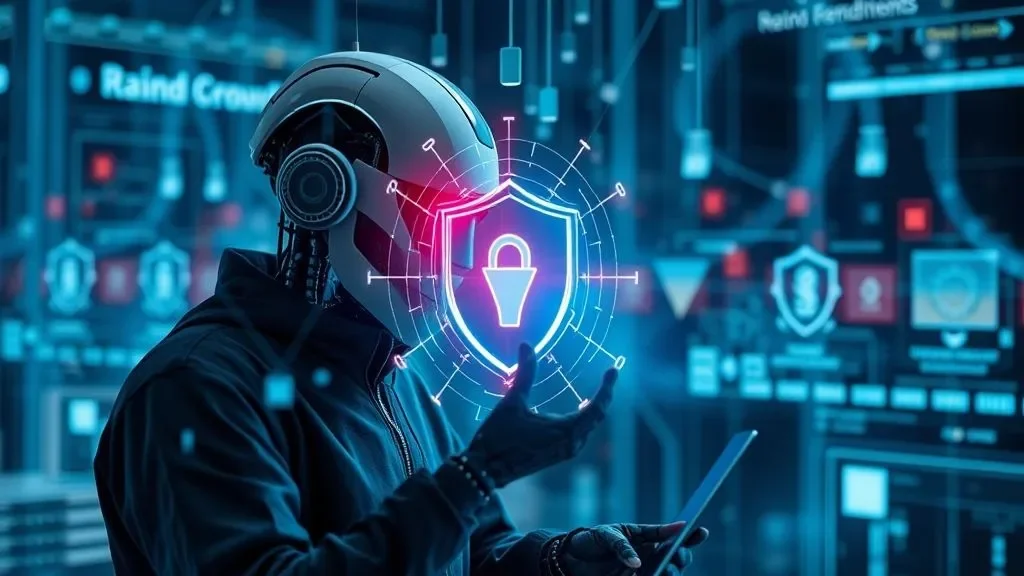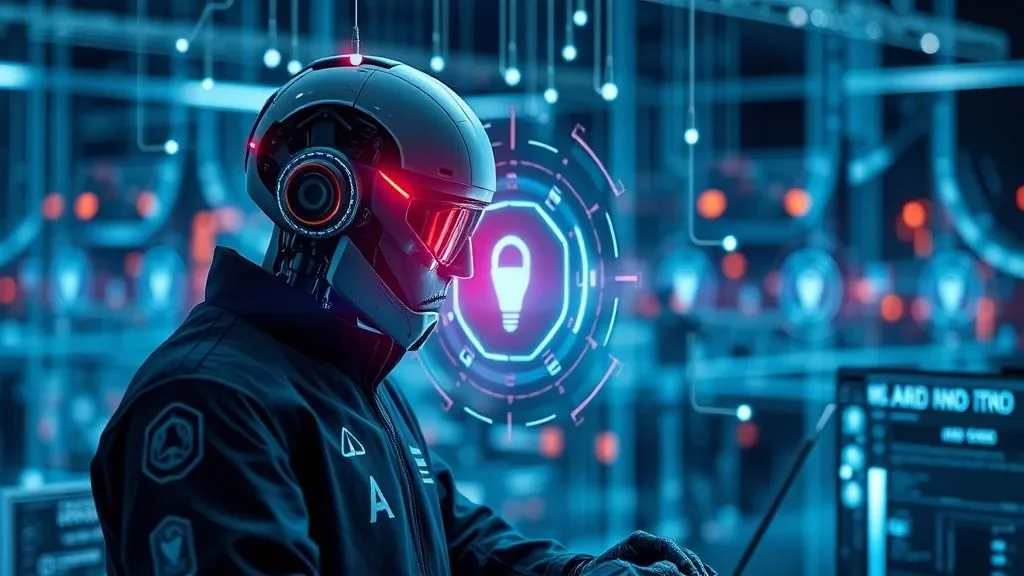Cybersecurity or Artificial Intelligence are two of the most promising and rapidly advancing career paths in today’s fast-evolving technological world. As we move into 2025, both fields are not only driving innovation but also transforming industries, government operations, and the way we live our daily lives. For students, IT professionals, and those considering a career change, deciding between these two dynamic sectors can be a complex yet exciting challenge.
Cybersecurity focuses on protecting networks, systems, and data from digital threats. With the rise in cyberattacks, ransomware, data breaches, and digital espionage, cybersecurity has become a global priority. Governments and businesses alike are investing billions into securing their digital infrastructure, making cybersecurity a highly demanded and well-paid profession.
On the other hand, Artificial Intelligence is revolutionizing how we interact with technology. From smart assistants like Siri to self-driving cars and AI-powered diagnostics in healthcare, AI is everywhere. It’s enabling machines to learn, reason, and solve problems—often faster and more accurately than humans.
This article compares these two career paths in detail. We’ll explore their core principles, educational paths, skill sets, job opportunities, salary potential, challenges, and long-term prospects. Whether you’re passionate about coding intelligent systems or protecting them from threats, this guide will help you decide which career—Cybersecurity or AI—is the right fit for your future.
Foundational Concepts
To make an informed career choice between Cybersecurity and Artificial Intelligence, it’s crucial to first understand the foundational concepts of each domain. Both fields are rooted in technology, but their goals, tools, and methods differ significantly.
Cybersecurity is the practice of protecting systems, networks, programs, and data from cyberattacks. Its foundation lies in confidentiality, integrity, and availability—known as the CIA triad. Cybersecurity professionals work to defend digital environments from malicious actors who seek to steal, destroy, or manipulate data. This includes protecting everything from financial information and intellectual property to personal data and government secrets.
Fundamentally, cybersecurity relies on understanding how systems work, how vulnerabilities arise, and how attackers exploit them. It requires knowledge of networking, encryption, firewalls, malware, access control, and risk management. Cybersecurity also encompasses ethical hacking, incident response, compliance, and digital forensics.
Artificial Intelligence, on the other hand, refers to the simulation of human intelligence in machines. The goal of AI is to enable computers to perform tasks that normally require human cognition—like learning, problem-solving, pattern recognition, natural language understanding, and decision-making. AI is built upon disciplines like machine learning (ML), deep learning, neural networks, data science, and statistics.
AI systems learn from data and improve over time. They power applications such as voice assistants, recommendation engines, chatbots, image recognition software, and predictive analytics. At its core, AI is about creating smarter systems that can operate autonomously or assist humans in making better decisions.
While cybersecurity focuses on protection and defense, AI is centered around automation and intelligence. Both domains are vital, yet they serve very different roles in the tech ecosystem. Understanding this foundation is key to identifying which path aligns with your interests and strengths.

Learning Pathways
Choosing a career in either cybersecurity or artificial intelligence requires a clear understanding of the learning journey involved. While both fields demand technical knowledge and ongoing education, their pathways diverge in terms of focus, depth, and specialization.
Cybersecurity Learning Path:
For cybersecurity, the learning journey typically begins with a solid foundation in computer science, networking, and information systems. Many professionals start with a bachelor’s degree in computer science, IT, or cybersecurity. Certifications play a huge role in validating expertise—popular ones include CompTIA Security+, Certified Ethical Hacker (CEH), Certified Information Systems Security Professional (CISSP), and Certified Information Security Manager (CISM).
Hands-on experience is essential. Many aspiring cybersecurity experts start with entry-level roles in IT support or network administration before transitioning into security-focused positions. Platforms like TryHackMe, Hack The Box, and Cybersecurity Labs provide real-world simulations to build practical skills.
AI Learning Journey:
For AI, the path typically starts with a strong grasp of mathematics, especially linear algebra, statistics, and calculus, along with programming (usually Python). A bachelor’s or master’s degree in computer science, data science, or AI is common. Key areas of study include machine learning, deep learning, natural language processing (NLP), and computer vision.
Online courses from platforms like Coursera, edX, and Udacity are also popular, with specializations in TensorFlow, PyTorch, and various ML frameworks. Building a portfolio with projects like predictive models, chatbots, or AI-powered apps is a must for demonstrating skills to employers.
While cybersecurity focuses more on security principles and threat mitigation, AI emphasizes data-driven modeling and intelligent system design. Both learning paths are rigorous but rewarding, and selecting the right one depends on your passion for either defending systems or building intelligent ones.
Education & Certifications
Education and certifications are critical for establishing credibility and competence in both cybersecurity and artificial intelligence. While both fields are accessible through self-learning and online platforms, formal education and industry-recognized certifications often open doors to better job opportunities and career growth.
Cybersecurity Education & Certifications:
Most cybersecurity professionals begin with a bachelor’s degree in computer science, information technology, or cybersecurity. However, due to the hands-on nature of the field, certifications often carry as much weight—if not more—than academic degrees. Entry-level certifications like CompTIA Security+ and Cisco’s CCNA provide foundational knowledge. As you progress, intermediate and advanced credentials such as CEH (Certified Ethical Hacker), CISSP (Certified Information Systems Security Professional), and CISM (Certified Information Security Manager) are highly sought after.
Some roles, especially in government or compliance-heavy industries, may require specific certifications or a master’s degree in cybersecurity or digital forensics. Bootcamps and online academies like SANS, Offensive Security, and Cybrary also provide accelerated learning tracks.
AI Education & Certifications:
Artificial Intelligence roles often require a strong academic foundation, especially in math, algorithms, and data science. A bachelor’s or master’s degree in computer science, data science, or artificial intelligence is commonly expected. Top universities and platforms like Stanford, MIT, and Google offer respected courses in machine learning and AI.
Certifications are not always essential in AI but are increasingly recognized. Examples include TensorFlow Developer Certificate, AWS Certified Machine Learning – Specialty, and IBM’s AI Engineering Professional Certificate. These demonstrate a strong grasp of model building, neural networks, and production-level deployment.
While cybersecurity emphasizes practical, scenario-based credentials, AI focuses more on theoretical depth and portfolio work. Choosing your educational path depends on whether you thrive in problem-solving and threat response (cybersecurity) or in data modeling and innovation (AI).

Career Opportunities & Job Roles
Cybersecurity and Artificial Intelligence offer a wide array of career opportunities, each with distinct roles, responsibilities, and career growth potential. Whether you’re aiming to protect digital assets or develop intelligent systems, both fields provide exciting and lucrative career paths.
Cybersecurity Job Roles:
Cybersecurity professionals are in demand across virtually every industry, including finance, healthcare, defense, tech, and government. Common roles include:
- Security Analyst – Monitors systems for security breaches and investigates incidents.
- Penetration Tester (Ethical Hacker) – Simulates attacks to find vulnerabilities.
- Security Engineer – Designs secure systems and infrastructure.
- Incident Responder – Reacts to and manages security incidents in real-time.
- Chief Information Security Officer (CISO) – Oversees an organization’s entire cybersecurity strategy.
As cyber threats become more complex, specialized roles like cloud security architect, cybersecurity consultant, and digital forensics expert are growing rapidly.
Artificial Intelligence Job Roles:
In AI, the focus is on building intelligent systems using algorithms, data, and machine learning models. Popular job titles include:
- Machine Learning Engineer – Designs and implements ML models and algorithms.
- Data Scientist – Analyzes large datasets to derive insights and build predictive models.
- AI Researcher – Works on cutting-edge innovations, often in academia or tech firms.
- Computer Vision Engineer – Develops systems that can understand and process visual data.
- Natural Language Processing (NLP) Specialist – Builds tools for language translation, chatbots, and sentiment analysis.
Both fields offer remote opportunities and the potential to work for top companies like Google, Microsoft, IBM, and cybersecurity firms such as Palo Alto Networks, FireEye, and CrowdStrike.
Ultimately, your choice depends on whether you’re more drawn to fighting digital crime or building intelligent machines. Both paths offer strong job security, high salaries, and impactful work.
Industry Demand & Salary Comparison
As technology continues to evolve, the demand for skilled professionals in both cybersecurity and artificial intelligence has skyrocketed. While both fields are considered future-proof, they serve different industry needs and command different salary ranges based on specialization, experience, and location.
Cybersecurity Industry Demand & Salaries:
Cybersecurity threats are growing in frequency and sophistication. Organizations of all sizes are investing heavily in digital protection, making cybersecurity one of the fastest-growing tech sectors. According to the U.S. Bureau of Labor Statistics, employment for information security analysts is projected to grow by 32% from 2022 to 2032—much faster than average.
Salaries in cybersecurity are competitive. Entry-level positions like security analysts can expect to earn $70,000–$90,000 annually in the U.S., while mid-level roles such as penetration testers or security engineers range between $100,000–$130,000. Senior professionals and managers, such as CISOs, often earn $180,000 or more, depending on the size of the company and region.
Artificial Intelligence Industry Demand & Salaries:
AI is transforming industries like healthcare, finance, marketing, transportation, and robotics. Businesses are leveraging AI to automate processes, enhance decision-making, and improve user experiences. Demand is particularly strong for AI engineers, machine learning experts, and data scientists.
Salaries in AI are generally higher due to the advanced skill set required. Machine learning engineers and data scientists earn between $110,000–$160,000, while more experienced AI professionals or researchers can command salaries upwards of $200,000, especially at major tech firms or AI-focused startups.
In summary, cybersecurity offers broad demand and strong stability, while AI delivers high-paying roles with cutting-edge challenges. Both sectors have strong future growth, so choosing between them depends on your career goals—whether you want to secure systems or create intelligent ones.
Skill Set Comparison
Understanding the skill sets required for cybersecurity and artificial intelligence helps in identifying which path aligns better with your interests, strengths, and long-term goals. Although both fields fall under the tech umbrella, the skills needed for each differ significantly.
Cybersecurity Skill Set:
Cybersecurity professionals must be adept at identifying, analyzing, and mitigating digital threats. Core technical skills include:
- Networking & Protocols – Understanding TCP/IP, DNS, HTTP, VPNs, and firewalls.
- Operating Systems – Proficiency in Windows, Linux, and Unix environments.
- Threat Detection & Prevention – Using tools like SIEMs, IDS/IPS, and antivirus software.
- Cryptography – Knowledge of encryption, hashing, and secure key management.
- Risk Management – Assessing and mitigating potential vulnerabilities in a system.
- Incident Response – Ability to handle breaches, contain threats, and conduct forensic analysis.
Soft skills are equally vital, including analytical thinking, problem-solving, attention to detail, and communication, especially when reporting threats to non-technical stakeholders.
Artificial Intelligence Skill Set:
AI roles, particularly in machine learning and data science, rely heavily on a mathematical and statistical foundation. Essential skills include:
- Programming Languages – Python is a must, with additional skills in R, Java, or C++ being helpful.
- Mathematics – Linear algebra, calculus, probability, and statistics are fundamental.
- Machine Learning Algorithms – Understanding supervised, unsupervised, and reinforcement learning techniques.
- Data Handling – Working with libraries like Pandas, NumPy, and tools like SQL and NoSQL databases.
- Deep Learning Frameworks – Experience with TensorFlow, PyTorch, or Keras.
- Model Deployment – Knowledge of MLOps, Docker, cloud platforms (AWS, GCP, Azure), and APIs.
AI professionals also need strong curiosity, experimentation mindset, and problem formulation skills to translate real-world issues into data problems.
In short, cybersecurity is about vigilance and protection, while AI is about innovation and automation. Choose the path that best matches your talents and passions.

Real-World Applications Across Industries
Both cybersecurity and artificial intelligence are reshaping industries across the globe. While cybersecurity focuses on protecting systems and data, artificial intelligence revolves around analyzing data and automating processes. Understanding their real-world applications helps highlight how each field contributes to business transformation and society at large.
Cybersecurity Applications in Industries:
Cybersecurity has become indispensable for every sector that relies on digital infrastructure. Key industry applications include:
- Finance & Banking: Cybersecurity protects sensitive customer data, prevents fraud, and ensures compliance with regulations like GDPR and PCI DSS. Systems must be resilient against phishing, DDoS attacks, and insider threats.
- Healthcare: Hospitals and clinics use cybersecurity to secure patient records, medical devices, and telemedicine platforms. HIPAA compliance is critical in this sector.
- Government & Defense: National security, classified data, and citizen information demand high-level cybersecurity protocols. Threat intelligence and cybersecurity frameworks are extensively used.
- Retail & eCommerce: With increasing online transactions, cybersecurity safeguards payment systems, customer data, and supply chains.
- Energy & Infrastructure: Critical infrastructure like power grids and water systems rely on cybersecurity to prevent catastrophic disruptions and ensure operational continuity.
AI Applications in Industries:
Artificial intelligence is transforming how industries operate by increasing efficiency, accuracy, and innovation:
- Healthcare: AI assists in disease diagnosis, drug discovery, and patient care via predictive analytics and medical imaging analysis.
- Finance: AI-powered algorithms detect fraudulent transactions, automate trading, and improve customer service through chatbots.
- Retail: Personalized product recommendations, demand forecasting, and inventory optimization are powered by machine learning.
- Transportation: Self-driving vehicles and AI-based route optimization are improving logistics and urban mobility.
- Manufacturing: Predictive maintenance, quality control, and robotics are AI-enabled in smart factories.
Challenges and Limitations
While both cybersecurity and artificial intelligence have proven to be critical in advancing technology and industry, they each come with their own set of challenges and limitations. These hurdles must be understood by professionals entering these fields to better navigate their careers and contribute to overcoming them.
Cybersecurity Challenges:
- Evolving Threats: The nature of cyber threats is constantly evolving. Hackers continually develop new techniques to exploit vulnerabilities, making it a cat-and-mouse game between attackers and defenders. The rise of ransomware, phishing attacks, and zero-day exploits presents a constant challenge to cybersecurity professionals.
- Skill Shortage: There is a significant talent gap in the cybersecurity workforce. The demand for skilled security professionals far exceeds the supply, leaving organizations vulnerable to attacks. This shortage creates intense competition for qualified candidates and places pressure on training and retention.
- Insider Threats: While external cyberattacks get much attention, insider threats—whether malicious or unintentional—are just as damaging. Securing against both external and internal threats requires sophisticated monitoring systems and strict access control protocols.
- Regulatory Compliance: Navigating the complex landscape of laws and regulations regarding data protection and privacy is an ongoing challenge. Cybersecurity professionals must ensure compliance with regulations like GDPR, HIPAA, and PCI DSS, which requires continuous updates and monitoring.
AI Challenges:
- Data Quality & Bias: AI systems are only as good as the data they’re trained on. Poor-quality, incomplete, or biased data can lead to inaccurate predictions or unfair outcomes. For example, biased data in AI models can lead to discriminatory hiring practices or biased judicial decisions.
- Ethical Concerns: As AI systems become more autonomous, ethical concerns about AI decision-making, privacy, and control become increasingly prominent. There is a growing debate on the role of AI in critical decision-making, such as healthcare diagnoses or legal judgments.
- Lack of Transparency: AI models, particularly in deep learning, can be complex and difficult to interpret, leading to a phenomenon called the “black box” problem. This opacity makes it hard to understand how AI systems make decisions and can raise trust issues in high-stakes applications.
- High Computational Cost: Building and deploying AI models, especially deep learning, requires significant computational power. This leads to higher operational costs and environmental impact due to the energy consumed in training complex models.
Both cybersecurity and AI are vital in today’s technological landscape but are not without their challenges. While cybersecurity requires constant vigilance against new threats and complex compliance requirements, AI faces issues related to bias, transparency, and ethical considerations. Overcoming these obstacles will be key for professionals in both fields.

Future Trends
Both cybersecurity and artificial intelligence are evolving rapidly, driven by advancements in technology, new threats, and the expanding role of AI in everyday applications. The future of these fields holds exciting prospects, but also presents new challenges as professionals must stay ahead of emerging trends.
Future Trends in Cybersecurity:
- Artificial Intelligence in Cybersecurity: One of the most significant trends is the growing integration of AI into cybersecurity. AI-driven security tools can help predict, detect, and respond to cyber threats faster and more accurately than traditional methods. Machine learning algorithms will be used to identify patterns and anomalies in network traffic, improving intrusion detection systems and threat hunting.
- Zero Trust Architecture: The Zero Trust model is gaining traction as organizations move away from traditional perimeter-based security. In this approach, no one, whether inside or outside the organization, is trusted by default. Continuous verification of every device and user is required to ensure security. This approach is critical as remote work and cloud services continue to rise.
- Cloud Security: With more businesses migrating to the cloud, securing cloud infrastructure will be a top priority. Cloud-native security tools and protocols, such as those for serverless computing and multi-cloud environments, will be pivotal in protecting digital assets. This includes monitoring user access and ensuring data privacy in cloud storage systems.
- Cybersecurity Automation: Automation will play a key role in tackling the ever-growing volume of cyber threats. Automated incident response tools will help organizations react to threats more swiftly and minimize the impact of attacks. Security orchestration will also enable the seamless integration of security tools to create a more responsive and efficient system.
Future Trends in Artificial Intelligence:
- AI in Autonomous Systems: AI’s role in autonomous vehicles, drones, and robots will continue to expand. AI systems will enable machines to make decisions in real-time, improving efficiency in industries like logistics, manufacturing, and healthcare. The growth of self-driving cars and autonomous trucks is expected to disrupt transportation and delivery systems.
- AI-Powered Personalization: In marketing, AI will become even more powerful in driving personalized customer experiences. By analyzing vast amounts of consumer data, AI systems will create tailored recommendations, advertisements, and product offerings. This trend will shape industries like retail, entertainment, and e-commerce.
- Quantum Computing and AI: Quantum computing, with its immense processing power, holds the potential to revolutionize AI. Quantum AI could solve complex problems that classical computers cannot, particularly in fields like drug discovery, cryptography, and logistics optimization. However, quantum computing is still in its early stages and will require substantial research and development before becoming mainstream.
- Ethical AI and Governance: As AI continues to make decisions on behalf of individuals and organizations, ethical considerations will grow. Regulatory frameworks to govern AI use, protect privacy, and ensure fairness will become more prominent. Ethical AI principles will be critical in industries like finance, healthcare, and law enforcement to avoid bias and discrimination.
- AI in Healthcare and Life Sciences: AI will further revolutionize healthcare with applications in drug discovery, personalized medicine, and health diagnostics. AI algorithms will help predict disease outbreaks, assist in early diagnosis of conditions like cancer, and provide more efficient treatment plans. AI will also aid in genomics and biotechnology, driving innovation in these sectors.

Conclusion
As we look toward the future, both cybersecurity and artificial intelligence will continue to play pivotal roles in shaping the technological landscape. While they serve distinct purposes, they are both deeply interconnected and integral to the development of the modern digital world. Each field offers its own set of challenges, career opportunities, and pathways for advancement.
Cybersecurity will remain at the forefront of defending against a growing number of cyber threats. With businesses, governments, and individuals relying more heavily on digital infrastructure, the demand for skilled cybersecurity professionals is only set to increase. The rise of AI-driven security tools, the transition to Zero Trust models, and the emphasis on cloud security will shape the future of cybersecurity.
On the other hand, artificial intelligence will continue to expand its footprint across industries, from healthcare to autonomous vehicles, with advancements in quantum computing and AI ethics further pushing the boundaries of what AI can achieve. As AI systems become more sophisticated, they will not only augment human capabilities but also revolutionize industries, driving efficiency, personalization, and innovation.
Choosing between a career in cybersecurity or AI depends on your interests and aptitudes. If you are passionate about protecting systems and ensuring digital safety, cybersecurity offers a fulfilling and dynamic path. However, if you are drawn to building intelligent systems and solving complex problems with data, AI could be the right choice.
Ultimately, both fields are essential to the advancement of technology, and professionals in both sectors are poised to make significant contributions to society. Whether you choose to pursue a career in cybersecurity or artificial intelligence, the future holds exciting opportunities for growth, learning, and impact. The key is to stay adaptable, continually sharpen your skills, and remain open to the evolving trends that shape the tech world.



